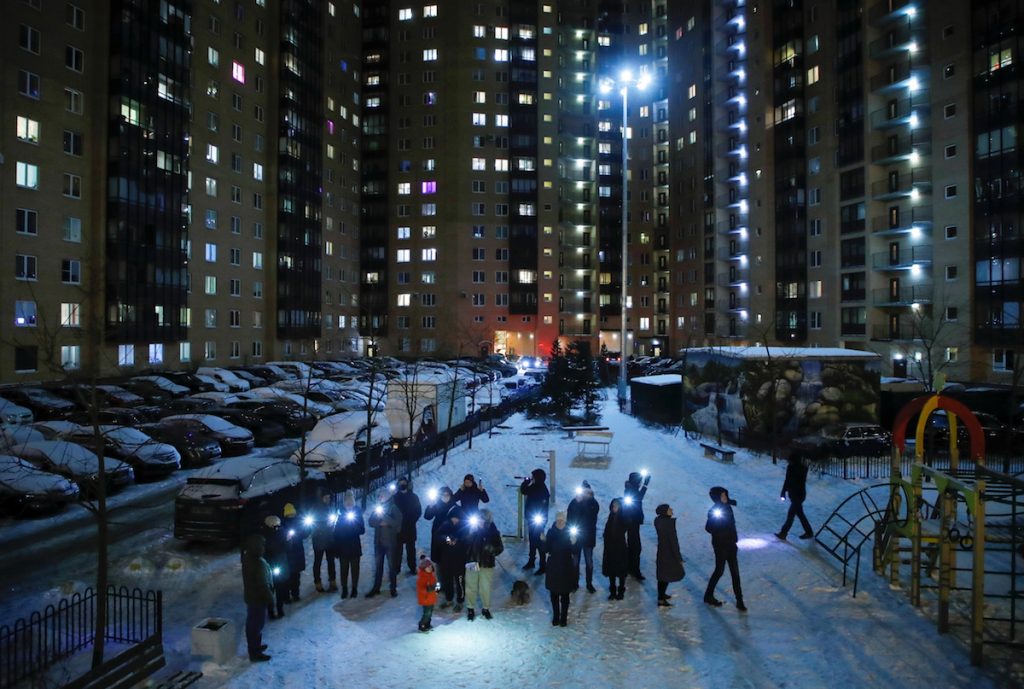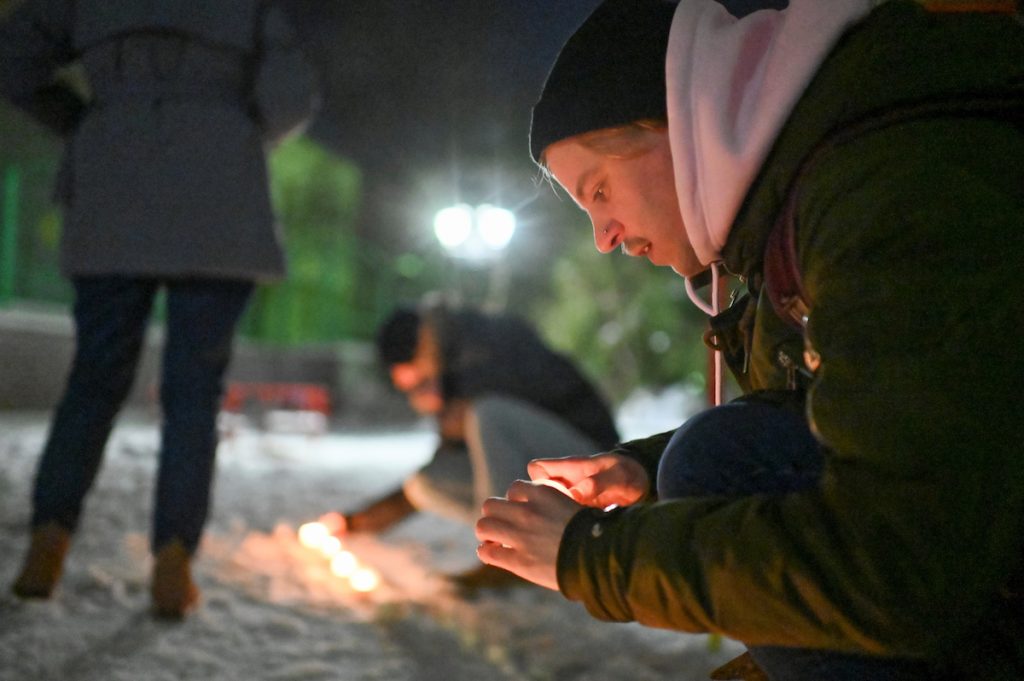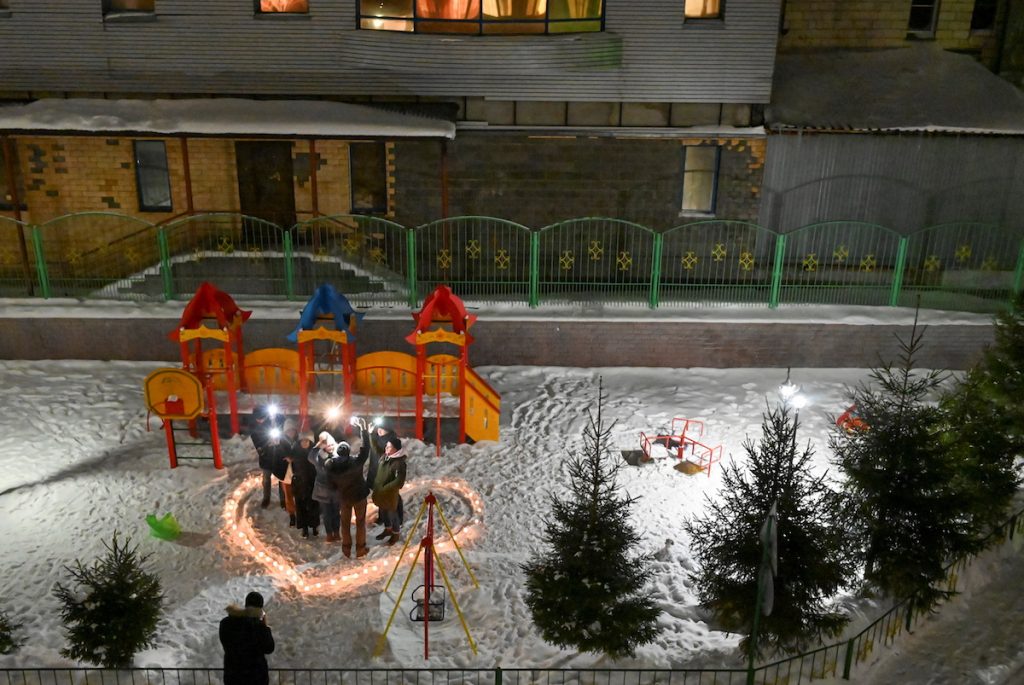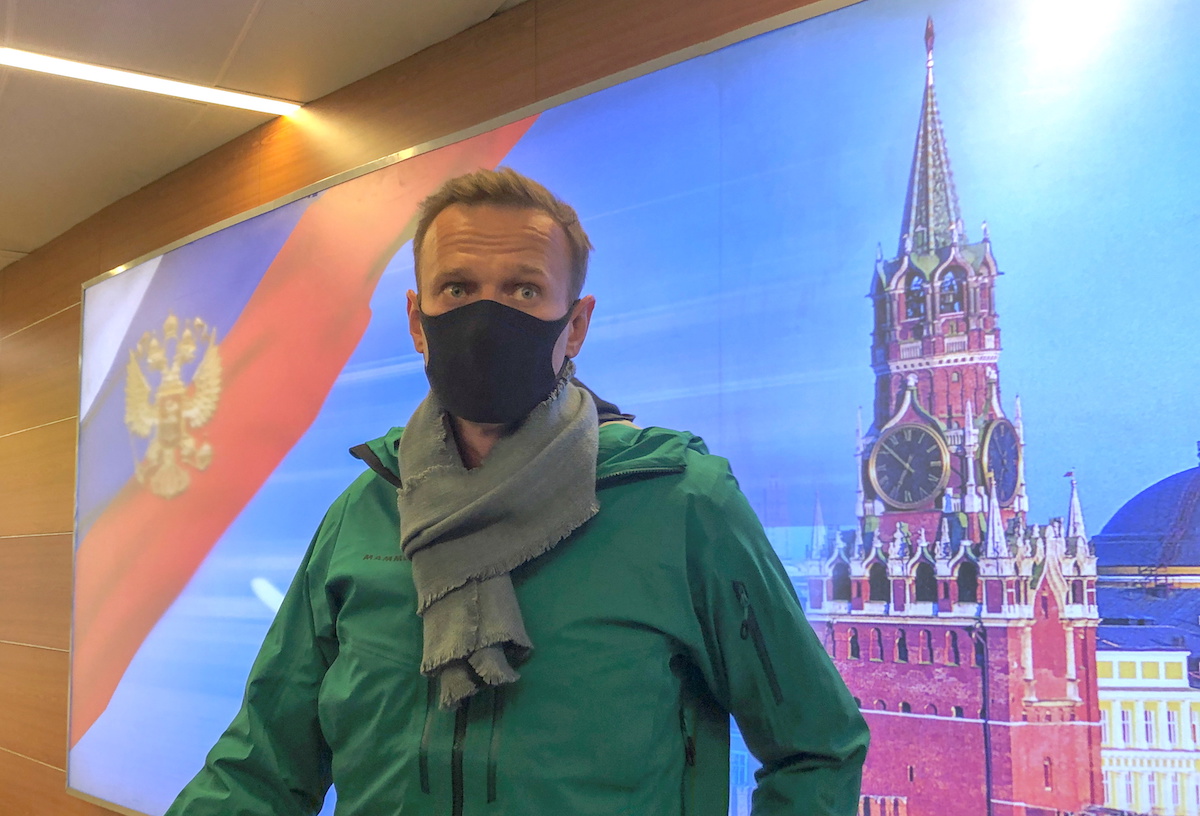Phone flashlights, love and Navalny – Russia’s Valentine’s Day flash mob
“Love is stronger than fear” – under this slogan, a flash mob was held all over Russia in support of arrested opposition leader Alexei Navalny.
The protesters went out into the street with lit phone flashlights, while the authorities did their best to prevent the rallies.
As the organizers of the action explained earlier, the meaning of the demonstration was to show support for the arrested politician, as well as solidarity for each other, meeting like-minded people on their street or in the yard.
- ‘You can’t arrest millions’ Russian court sentences opposition leader Navalny
- ‘Freedom for Navalny!’ Thousands rally in support of opposition politician throughout Russia. Photos, video

According to Russian media, 12 people were detained at Sunday rallies in support of Navalny in different cities of Russia.


People posted photos from the rally on social media.
More than 8,000 messages have been tweeted under the tag #loveisthanstronger in Russian [#ЛюбовьСильнееСтраха]. Some wrote that they took part in the rally alone and did not meet other like-minded people. But they don’t regret it.
В Екатеринбурге весело!#ЛюбовьСильнееСтраха pic.twitter.com/PxrvotweGc
— ФБК (@fbkinfo) February 14, 2021
Какие прекрасные лица! Прямо ❤️ радуется. pic.twitter.com/IJVJ80Hahv
— Навальный Пермь (@navalnyperm) February 14, 2021
The leader of the Russian opposition, Alexei Navalny, was arrested on January 18 at the airport when he returned from Germany, where he was receiving treatment after being poisoned with a nerve agent similar to Novichok. He blames the Russian authorities for the assassination attempt.
Later, the court changed a probation sentence, received in an earlier case, to a real term and sentenced him to 2 years and 8 months in prison.
Mass rallies demanding the release of the politician took place throughout Russia on January 23 and 31. The authorities responded to the protests with arrests and reprisals.
Forced to love
In the days preceding the rally, all Russian state structures actively tried to prevent it from happening.
The Prosecutor General’s Office, the Investigative Committee and the Ministry of Internal Affairs of Russia issued a warning about liability for participation in “illegal rallies”.
And Roskomnadzor, the Russian communications regulator, demanded that online publications remove the announcements of the rally with flashlights on February 14. Some of the independent publications were forced to comply under threat of blocking.
Because of an article about the rally, Roskomnadzor blocked the website of Spektr in Russia, whose headquarters are located in Latvia.
Through groups on social media, warnings were also sent out to students, as well as to parents of schoolchildren. Students were threatened with expulsion from universities for participating in unsanctioned rallies.
At the same time, the Federal Agency for Youth Affairs recommended that schools and universities hold a campaign “Russia – the country of love” across the country on February 14. Students were invited to give flowers to “all the people around” on Valentine’s Day.
Pro-government media even published articles about how dangerous the flashlight function in a smartphone is and why it is best not to leave it on for extended periods of time.
Putin on Navalny
Meanwhile, Russian President Vladimir Putin commented on the protests in support of Alexei Navalny during a meeting with chief editors of the media. According to Novaya Gazeta, in his opinion, Navalny is being “used,” and he linked the protests to public discontent over the coronavirus pandemic and economic problems.
“The person involved in this (Putin still avoids mentioning Navalny by name) is being used right now, just when in all countries of the world, including ours, fatigue arises, people have accumulated irritation, discontent, including in relation to the conditions in which they live, the level of income,” Putin said.
According to him, “life has become worse for this person, so he blames his superiors, and this is nothing new.”
“There are many ambitions, a lot of energy, the desire to earn more money, to break through to power. […] And all this is simply being used in the most active way,” Putin said.



















